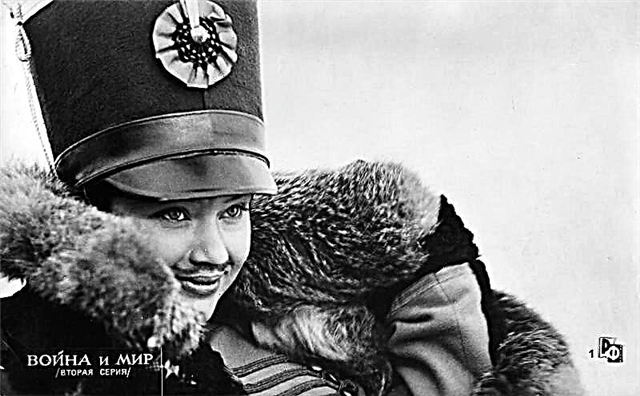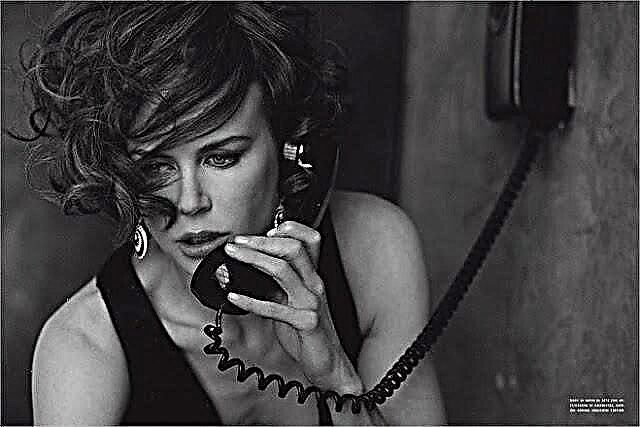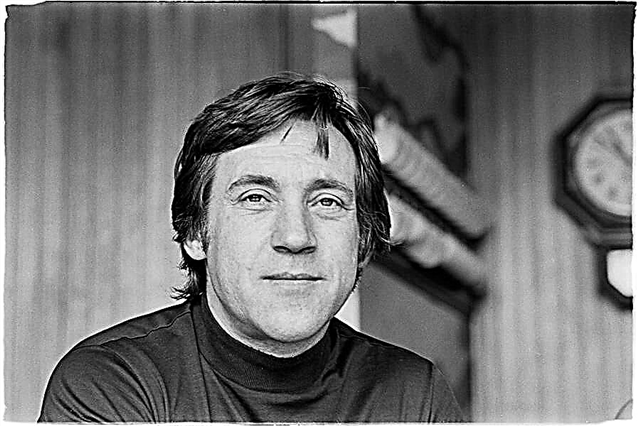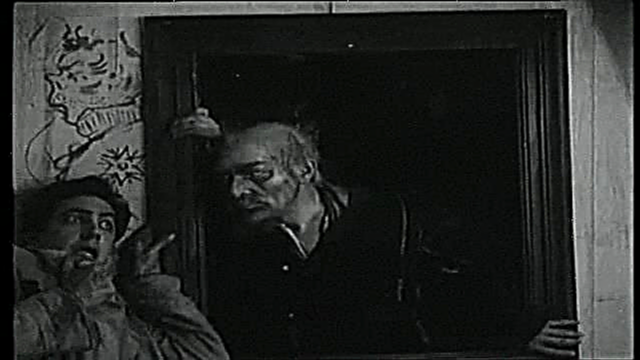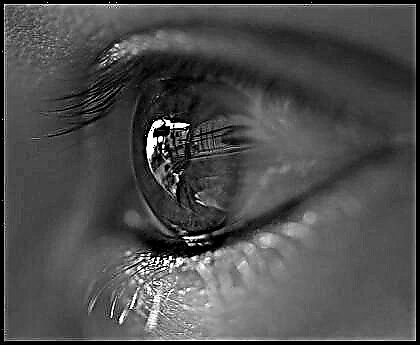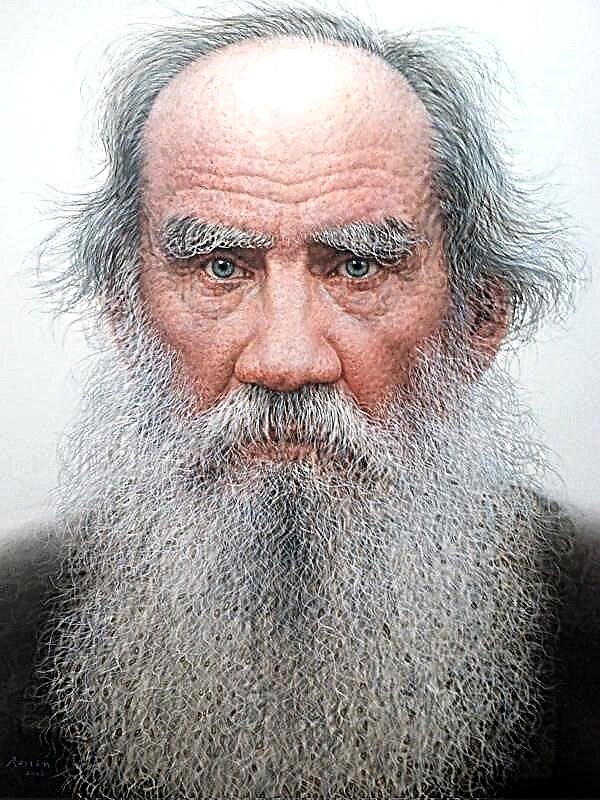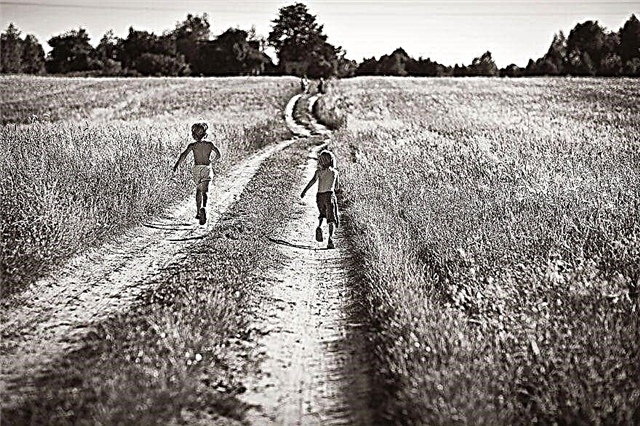The Seducer’s Diary is part of the most famous book of the Danish philosopher and writer Seren Kierkegaard, “Ili - Ili”, written in the form of a novel, sometimes printed separately. In the “Preface” to the book, her imaginary publisher Victor Eremita explains: the notes published by him were found in an old bureau bought on the occasion. By handwriting and content, he divided them into two volumes: the first contains articles and works of an “aesthetic nature”, written obviously by one person, whom he conditionally called Mr. A, the second contains the instructive and philosophical letters of a certain assessor Wilhelm addressed to this Mr. A.
The “Diary” is included in the first “aesthetic” volume attributed to the pen of Mr. A. However, on his first page, Mr. A refuses authorship: he just found the diary in his friend Johannes’s desk drawer, who left Copenhagen for a few days. The contents of the notebook, entitled by its true author, Commentarius perpetuus (which means “Endless Comment”), and a few more rough drafts of letters found in the same box, so impressed Mr. A's imagination that he decided to rewrite them: he had previously he considered his friend to be an extraordinary kind, half living in the magical world of beauty, separated from reality by only a thin transparent fleur, having met his diary, he discovered for himself: Johannes’s life itself is a series of conscious attempts on his part to realize the dream of living exclusively poetically, and since he has a highly developed ability to find interesting things around him, he makes full use of it, and then poetically reproduces what he has experienced on paper.
Most of all, Johannes, as the diary testifies to this, is interested in love affairs and girls - an undoubted part of the beautiful. True, the spiritual side, prevailing in his nature, does not allow him to be content with the low role of an ordinary seducer - that would be too rude - no, in the love, or, as Johannes puts it, “erotic” game, he appreciates most of all precisely the virtuoso possession of it . In fact, according to Johannes' diary, Mr. A, most often the ultimate goal of his friend's persistent harassment was ... only a bow or a smile. However, this is not the case with the main character of the diary Cordelia (her real name is Johannes changed), which Mr. A knows well: she herself handed him the letters sent to her by Johannes, as well as several more addressed to Johannes, but not printed by him and sent back to her letters - the cry of her loving and rejected soul.
The diary opens with Johannes notes made in early April. Once his attention was attracted by a girl gracefully jumping from the foot of a carriage. A few days later he meets her walking along the street, accompanied by a footman. The footman falls awkwardly and is smeared in the mud, and Johannes gallantly escorts the girl to the carriage. A few days later he meets her again on the street - this time by the arm of an elderly woman: the girl’s beauty strikes him, but only a few minutes later Johannes can’t remember her face, and this torments him, for some reason he wants to remember him surely
Johannes is seriously interested. He is looking for a stranger on the streets and in theaters, on opening days, takes long walks in Copenhagen. And then one day he meets her in the evening immediately after sunset at one of the outposts. A girl stands and looks at a boy fishing in a pond for a fishing rod. The boy is dissatisfied with her attention. The girl laughs and leaves. Johannes hurriedly follows her and, in order to examine her, runs ahead and enters one of the houses to look at the girl from the window - and just then he is losing her.
But a few days later he meets her again. Johannes sees a stranger on the street in the company of other girls: they call her Cordelia. Johannes follows them and finds out: Cordelia is in Mrs. Jansen’s house, her parents (father-captain and mother) have long died, Cordelia lives with her aunt, a virtuous and strict woman. Johannes enters Ms. Jansen's house, and there he is represented by Cordelia, but he does not impress the girl, which is to his advantage. From now on, he intends to see her only as if by chance, calculating, for example, time in such a way as to meet her, entering the house at the moment when she leaves it. His plan is cunning. You need to find Cordelia the groom - a decent and handsome young man, not too far, however, far away - in a word, who has no chance compared to him, Johannes.
And such a person is quickly located. In Cordelia, the first and reverent love is in love with the son of businessman Baxter Edward. To get acquainted with Edward and win his friendship for Johannes is a mere trifle. He sincerely advises the young man not to be too dreamy and act more decisively - sigh quite! Soon both of them are regular guests in Aunt Cordelia’s house, and Johannes, Edward’s adviser and accomplice in heart affairs, distracts the aunt’s attention from the couple, he occupies the hostess of the house with conversations on agricultural topics. Johannes's inattention to Cordelia is defiantly insulting: Johannes behaves like an old man; Cordelia feels: something is wrong here, she is intrigued and passes by the ears of the lover of Edward, listening instead to the pseudo-serious conversations of Johannes and the aunt giving "milk poetry" and "cheese dialectics". Although from time to time, Johannes puts into her speech a word or two, from which the aunt goes numb, realizing that they are from another world - philosophy and high poetry (however, they are not intended for her hearing). Johannes is gradually preparing Cordelia for her future role as a lover: he picks up books for her to read, which, naturally, Edward brings to his house on his behalf, and condescends to conversations with her about music.
Finally Johannes decides: Edward has played his part; he is no longer needed. In the outpouring of his feelings, a young man can lose his measure, lose his temper, explain to Cordelia in love, and thereby complicate and spoil the plot. Therefore, Johannes “takes the lead”: he is the first to make Cordelia a marriage proposal, she doesn’t answer anything, entrusting her aunt’s decision, and she gives her consent with pleasure - thus, Johannes and Cordelia are engaged, they are the bride and groom. But Johannes is not going to marry, he has other far-reaching plans, he does not doubt for a minute that he will make Cordelia break the engagement and at the same time win her love. Although he does not pursue possession of it, the main thing for him is "enjoyment in an artistic and aesthetic sense." The struggle for love begins: Johannes retreats, promising Cordelia an easy victory over himself: he demonstrates love for her in all its manifestations - in anxiety, passion, longing, hope, impatience. He is sure that by showing Cordelia the power of love that owns him, he will convince her: love is a great power, and she will want to love ...
Johannes continues the siege: he writes passionate letters filled with romantic passion and frank love languor, but at the same time, each time meeting with Cordelia, he behaves with her with emphasized self-control and irony,
Does he really love Cordelia? Yes! Sincerely? Yes. With good intentions? Yes, in an aesthetic sense. He wants to wake love in her. But love takes possession of Johannes himself, and so much so that for a time he refrains from caring, as usual, for several girls at once, and changes his principle that “the fisherman needs to cast small fishing rods just in case and on the side. "
Finally, Johannes is convinced: Cordelia is awakened, and he doubles the ardor of letters: his whole life in them is presented as the myth he created about Cordelia. According to Johannes, the girl quickly learns the lessons of love - now sometimes she sits on his knees, her hands gently wrap around his neck. "Her passion can be called naive ... when I begin to retreat, she will use all efforts to keep me, and for this she will have only one means - love." Accordingly, Johannes begins to show coldness: now, when meeting with Cordelia, he pretends to be a person obsessed with the idea and talking about it all the time, not noticing the bride. In letters, he inspires Cordelia with a thought - the engagement fetters, binds his feeling, real deep love can only be a secret ... And Johannes gets his way: Cordelia returns his word and breaks the engagement. This aunt is somewhat puzzling to her aunt, but she is too liberal to not niece, and Johannes directly sympathizes.
Cordelia is allowed to leave for a few days in the village with friends. Johannes continues to write to her, he strengthens (his imaginary or real?) Beloved in contempt for the opinion of the world and convinces her of the greatness of the power of love, reproducing in one of the letters the legend: Alfeus fell in love with a hunt for the nymph Arethusa. She did not want to heed his prayers and ran away from him, until she finally turned into a source. Alphaeus grieved for her so much that he himself became a stream. But even in his new form, he did not forget his beloved and connected underground with an expensive source ... Does he, Johannes, rush now, when they are separated from Cordelia, into the dark depths to connect with her?
Johannes carefully prepares the setting for the cottage, which Cordelia is to bring to him. Here is the same as in Aunt Cordelia’s house, a tea table, the same lamp on the table - but everything is much more luxurious. And in the living room there is the same piano as the one on which Cordelia played a Swedish folk song at one of the moments when Johannes invisibly admired her view.
The last entry in the Diary is dated September 25th. It's over: Johannes no longer wants to see Cordelia. Once the girl surrendered - she lost everything. “Alas, the times have passed when a deceived girl could turn from grief into a heliotrope!”
Johannes is now interested in the question: is it possible to “get out of the girl’s poetry in such a way” to leave her proudly convinced that it was she who left the seducer, and not he?

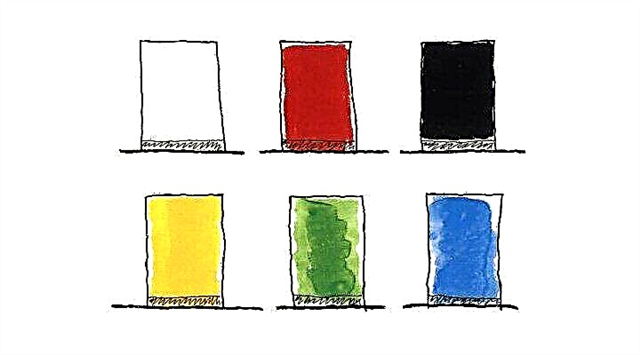
 Communication skill
Communication skill